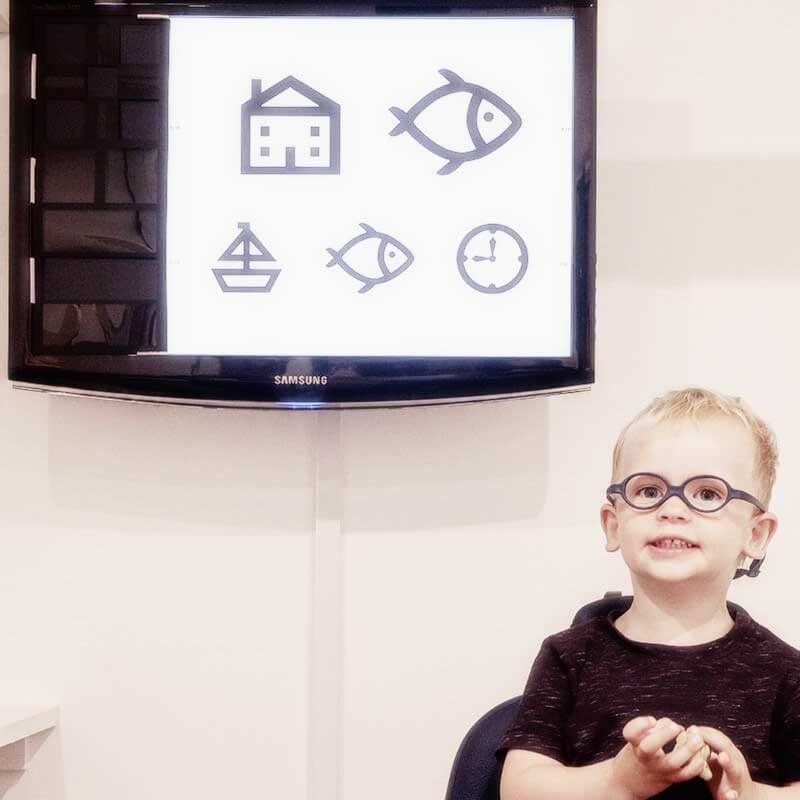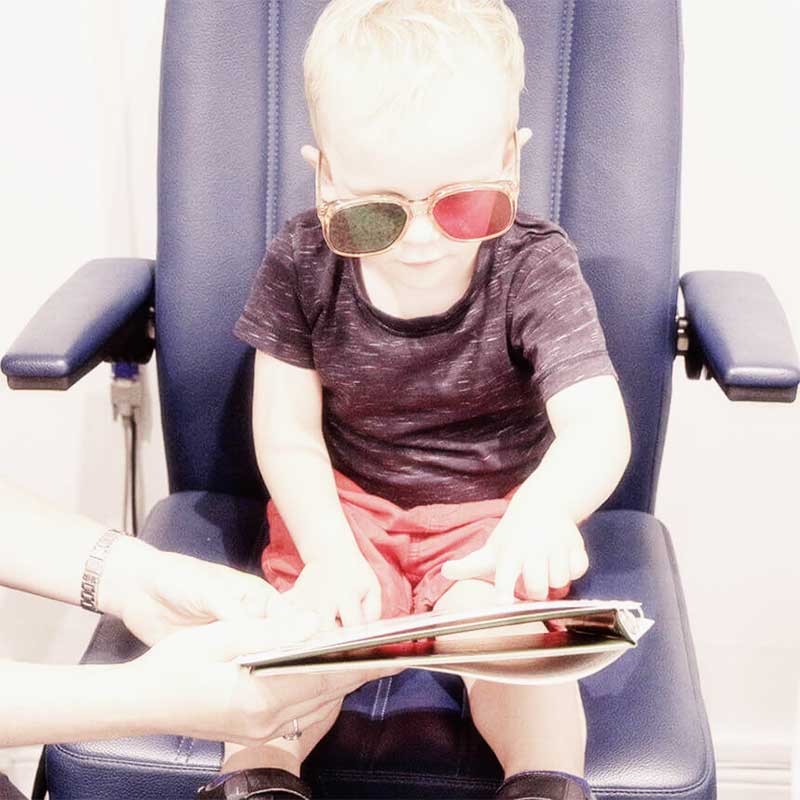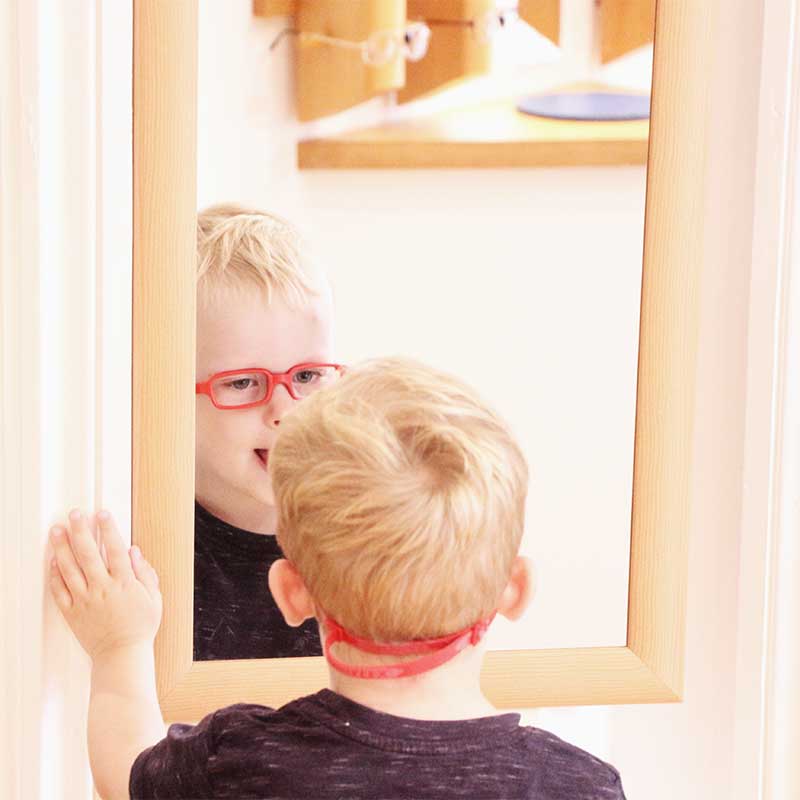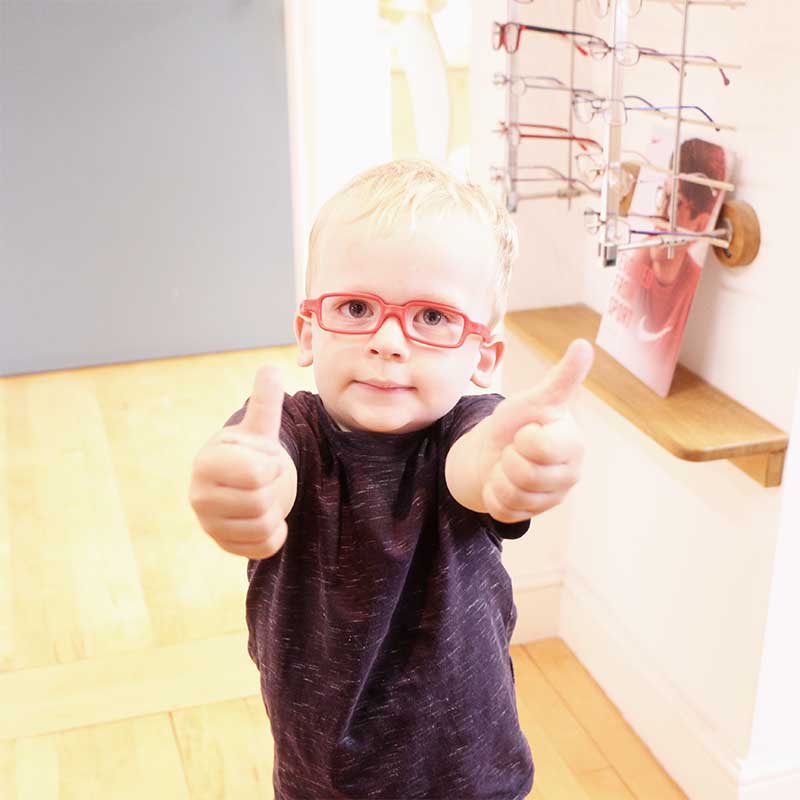Children's Vision
Your Child’s Eyes
After birth, children’s eyes are still developing!
Children are often unaware of issues with their eyes, or vision and many eye problems may not give rise to any symptoms. Early detection is key to successful treatment of eye conditions and is crucial for their development socially and to the best of their ability. If there is a family history of eye problems, then children would be at a higher risk of developing one also.
Download your child’s FREE “Eyes Supplement” pdf for your child’s Personal Child Health Record.
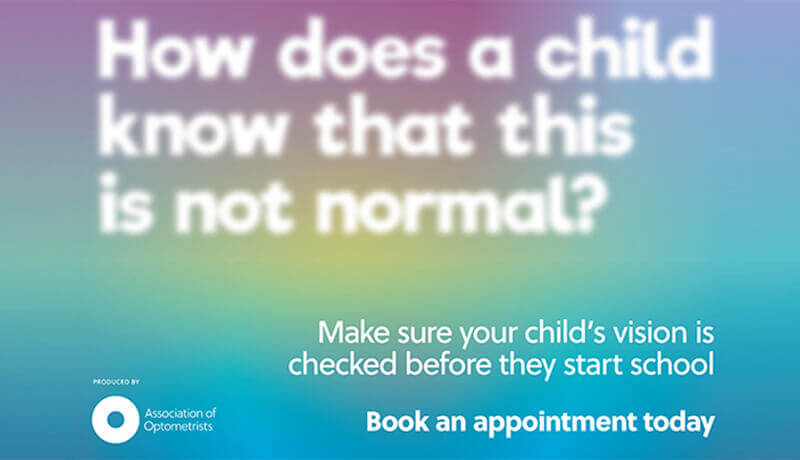
Did You Know?
- About 1 in 5 school-aged children have an undiagnosed vision problem.
- Over 80% of how a child learns at school is vision-related.
- About 60% of students identified as “problem learners” have undetected vision problems.
- 84% of parents agree that improved vision would have a positive impact on their child’s performance at school, yet…
- Whilst 90% of children visit a dentist regularly, only 53% have ever had an eye examination.
Child Eye Tests
- It’s important for children to have an eye test, and especially if you are concerned.
- Children do not need to know their alphabet to be able to have their eyes tested, and babies even younger than 6 months of age can be examined by a suitably trained Optometrist.
- At present, children are entitled to an NHS-funded sight test and an Optical Voucher as help toward the cost, if they need glasses.
NHS sight tests are FREE for children under 19
Barnard Optometrists specialise in paediatric eye care and have additional qualifications to provide visual assessments associated with dyslexia, dyspraxia, ADHD and learning difficulties – we welcome any questions you may have regarding your eye health.
Frequently Asked Questions
Barnard Optometrists specialise in paediatric eye care and have additional qualifications to provide visual assessments associated with dyslexia, dyspraxia, ADHD and learning difficulties.
We welcome any questions you may have regarding your eye health.
When should I take my child to the opticians?
The Association of Optometrists (AOP) recommend that all children should have a sight test around the age of three; we recommend that children should have their first sight test at six months of age, or even as a newborn and especially if there are any concerns or family history of any eye conditions. This would enable us to pick up any eye conditions which can be treated earlier, particularly before they start school.
Does my child need to know their letters?
No, we have a range of vision tests we can use depending on the age of the child and how confident they are during the test. Some vision tests do not even require your child to talk at all, we just look at eye movements to determine whether or not they have seen the picture.
Why is it important for eye conditions to be picked up early?
Children’s vision continues to develop until they are around eight years old. This means we have until this age to correct their sight and any muscle weakness to allow the vision to develop normally. If left untreated it can lead to a lazy eye.
Can digital screens harm my child’s eyes?
Research shows that prolonged screen time can increase the progression of myopia (shortsightedness), so screen time must be balanced with time outdoors. There is no scientific evidence to show that blue light from screens can damage eyes, but it can lead to poorer sleep if used before bed. Make sure digital devices are turned off at least an hour before bed.
What happens during a sight test?
A sight test should be a good experience for a child; during the test, we establish how well your child can see, if their two eyes co-ordinate well together and that there are no concerns with the health of their eyes.
How much does a sight test cost?
Sight tests are free for children under 16 years of age and for anyone in full-time education under the age of 19.
How would I know if my child has a vision problem?
You may not! Sometimes there may not be any signs or symptoms that your child may be struggling with their vision as they themselves may not know that what they are experiencing isn’t normal. This is one of the major reasons that it is so important for them to have a sight test regularly. Some children will show signs of a problem. For example:
- An eye turning in or out
- Difficulty concentrating
- Headaches
- Sitting too close to the television
- Frequent eye rubbing
What should I look for when buying my child’s glasses?
- Attend regular sight tests
- Provide a healthy diet and plenty of water
- Protect their eyes from the sun with a hat, suntan lotion on eyelids, good-quality sunglasses with UV protection and stop them looking into the sun.
- Spend plenty of time outdoors – research shows playing outside for two hours is ideal for healthy eyes.
